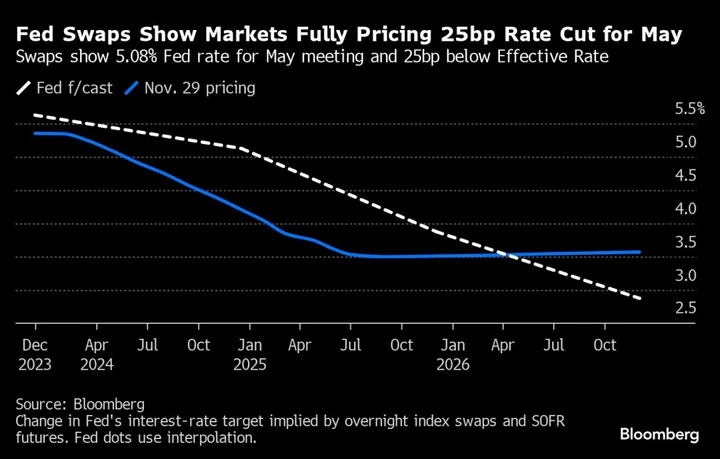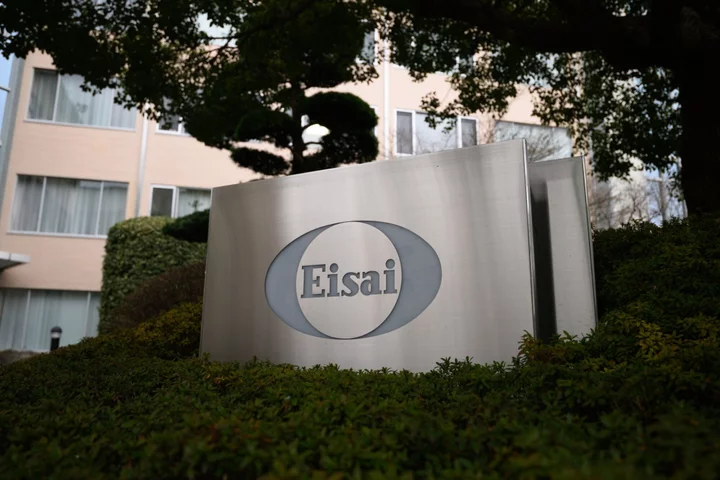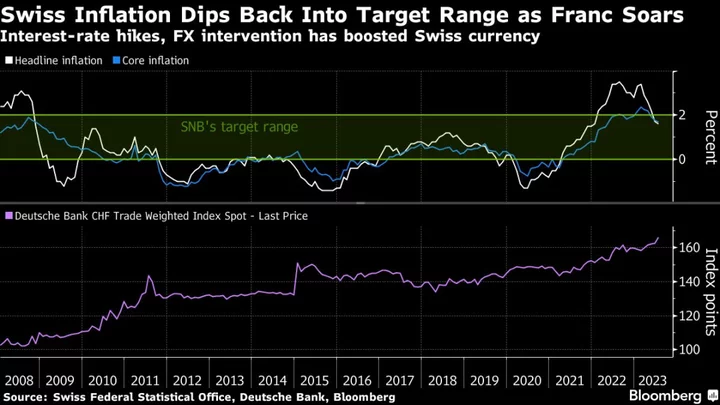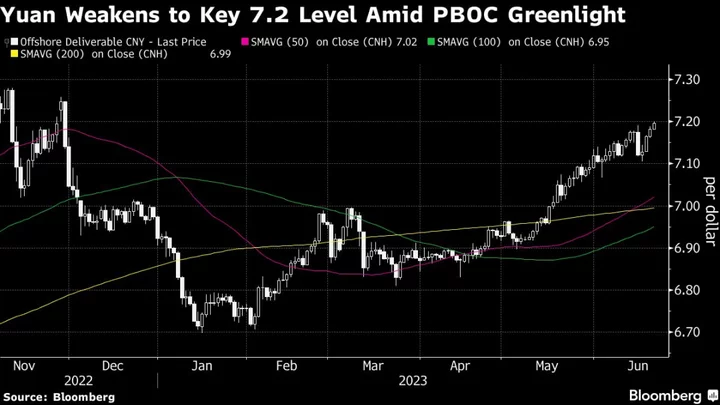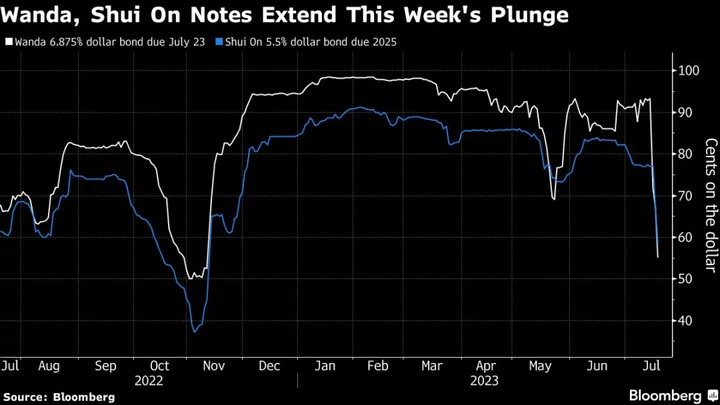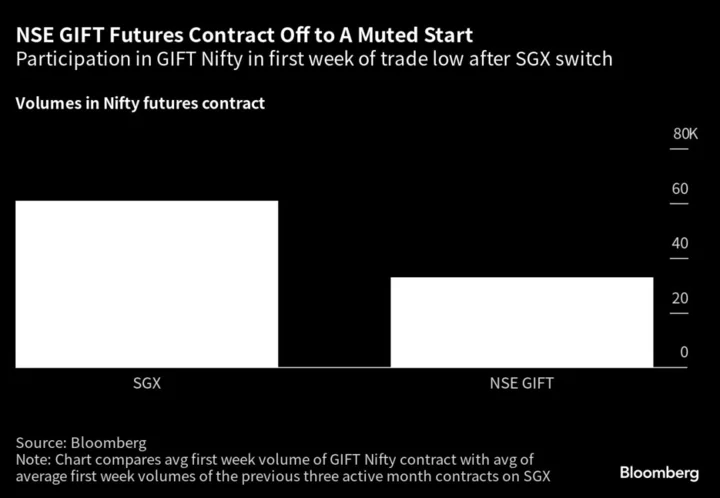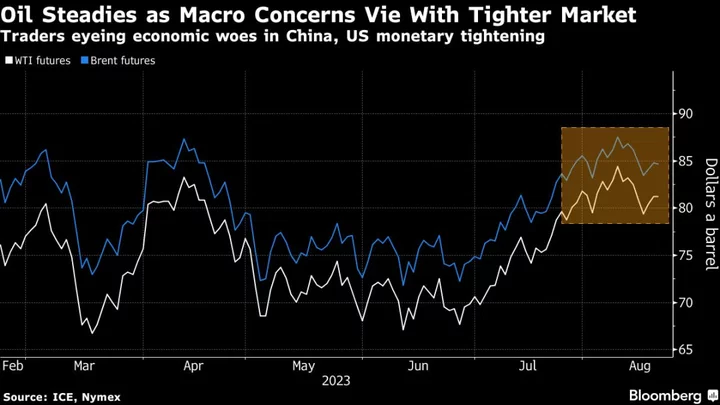The asset management unit of JPMorgan Chase & Co. is breaking away from a number of its peers and voluntarily complying with a new European Union rule that requires fund managers to report their social and environmental impact.
The Wall Street firm has issued a so-called entity-level principal adverse impact (PAI) indicator statement, amid growing pressure on firms to show EU clients the extent to which their business is damaging the environment. That’s as Mairead McGuinness, the EU’s financial markets and services commissioner, says firms that don’t take ESG seriously face a bleak future in the bloc.
The PAI rule, enforced on June 30, is designed to provide a set of metrics that help clients compare asset managers operating in Europe, based on their negative ESG impact. The EU hopes the indicator will be a game changer after previous environmental, social and governance requirements proved too complex for many end investors.
PAI has been structured to give firms with smaller operations inside the EU some leeway. Asset managers with less than 500 employees in the bloc can make do with disclosing only the impact of the financial products they sell. Bigger firms need to report the so-called entity-level impact, meaning the social and environmental footprint of their entire EU operations must be made public.
JPMorgan Asset Management issued an entity-level PAI statement despite having less than 500 employees based in EU countries, according to an analysis by Morningstar Inc. Vanguard Group Inc. and State Street Corp., which also have under 500 employees in the EU, didn’t provide entity-level PAI reports, according to Morningstar.
Spokespeople for JPMorgan and Vanguard declined to comment. A spokesperson for State Street didn’t respond to a request for comment.
Firms that submitted PAI statements clearly struggled with the disclosures required, according to analyses by Morningstar and Stockholm-based Datia, a climate fintech company.
Asset managers “were very, very keen to speak and explain the numbers because they’re very, very nervous about how this could be interpreted,” said Hortense Bioy, global director of sustainability research at Morningstar, who spoke with managers in the weeks after the June 30 deadline for publishing statements.
And asset managers looking at publicly available statements are finding it difficult to gauge a trend.
There’s a “huge difference in data that are reported,” said Carola van Lamoen, head of sustainable investment at Robeco, which filed an entity-level statement. “The comparability of the different PAI statements is limited.”
Morningstar’s analysis of eight of the largest asset managers operating in Europe revealed “a lot of variations, a lot of divergence,” Bioy said. But it’s likely to improve over time, she said.
What’s a PAI?
- EU legislation defines principal adverse impacts as those linked to “investment decisions and advice that result in negative effects on sustainability factors”
- Larger financial market participants operating in Europe must report on PAIs
- There are 14 mandatory reporting requirements for investments in companies, including exposure to the fossil fuel industry, harm to biodiversity-sensitive areas and the average unadjusted gender-pay gap
- Investment managers submitting statements need to provide information showing how they’re addressing such negative impacts
While there are issues around quality, the data can still be used effectively to get companies — particularly “laggards” — to address ESG risks, said Dennis Haensel, head of ESG advisory at Deutsche Bank AG’s investment unit, DWS Group.
“We can use these numbers as trigger points for interaction with companies and clients,” he said.
The PAI statements feed into the Sustainable Finance Disclosure Regulation, the EU’s landmark legislation enforced in 2021 with the goal of rooting out greenwashing and steering capital into sustainable activities. And like most other ESG reporting requirements, PAI faces meaningful data hurdles and questions around interpretation.
“For every manager, it was kind of a leap of faith, publishing their first PAI statement, because it had never been done before,” said Kenneth Robertson, head of sustainable investing for client portfolio management at Robeco. “Nobody knew what everyone else was going to do.”
The Morningstar analysis shows that JPMorgan disclosed Scope 3 greenhouse gas emissions of more than 88 million tons of CO2 equivalents, compared with 77 million for Amundi, Europe’s biggest asset manager. JPMorgan also disclosed the highest reading for emissions to water generated by investee companies, of the sample analyzed by Morningstar.
For social risks, JPMorgan reported the lowest risk for violations of the United Nations Global Compact principles and the OECD guidelines for Multinational Enterprises.
The firm said in a statement to Morningstar that it’s “committed to continuing to enhance its approach to engaging sovereign issuers on financial material ESG issues.”
Not all asset managers are taking the statements as seriously as others, according to Nora Sandahl, head of sustainability at Datia. One asset manager ignored the requirement to show how it’s dealing with the adverse impacts of its business, while another called the reporting requirement “useless,” according to Sandahl.
Downplaying PAI’s significance is risky, according to Eric Pedersen, head of responsible investments at Nordea Asset Management.
While “we know that we can’t trust all these numbers necessarily,” the introduction of a PAI requirement is “really big,” he said.
“They’re forcing us to actually tabulate this and make sure that we have systems that can get that data from the portfolios, aggregate it up,” Pedersen said. The upshot is that an asset manager can’t subsequently claim they didn’t know, he said. “You can’t say that I’m not keeping track.”
(Updates to add comment from DWS after the fact box.)



